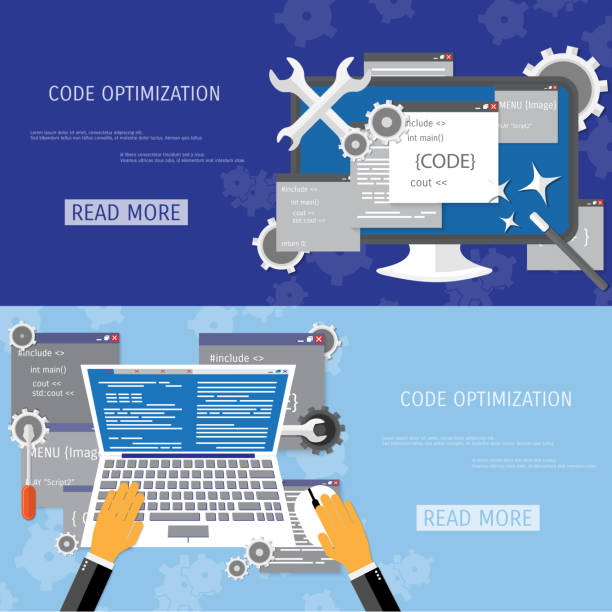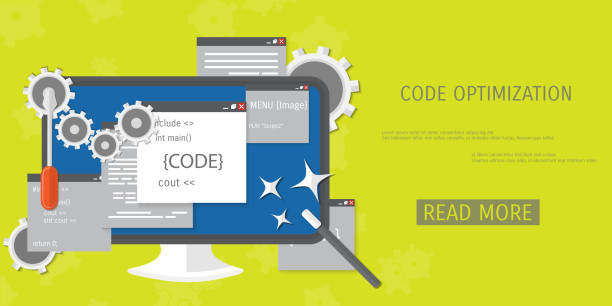Website maintenance is crucial for several reasons. It goes beyond keeping your site looking fresh—it ensures that it functions properly, remains secure, and delivers a positive user experience. Regular maintenance helps you avoid technical issues, lost revenue, and even security breaches.

Why Website Maintenance Is Important
Security Updates
One of the most important aspects of website maintenance is security. A website that’s not regularly updated is vulnerable to attacks such as hacking, malware, and data theft. If you’re running an e-commerce store or collecting customer information, these risks are even greater. Outdated software, plugins, or themes can have security vulnerabilities that hackers can exploit. Regular updates fix these issues and protect both your website and your users.
Bug Fixes and Performance Checks
Another vital aspect of web maintenance is bug fixing and performance optimization. Over time, bugs, broken links, and slow-loading pages can develop on your site. These problems can frustrate users and negatively affect your search engine rankings. Regular maintenance helps identify and fix these issues before they have a chance to impact your business.
Performance checks ensure that your site loads quickly, which is essential for keeping visitors engaged. Slow websites often lead to high bounce rates, which can harm your SEO efforts and reduce conversions.
Improved User Experience
A well-maintained website ensures a positive user experience. By updating content, fixing errors, and improving functionality, you create a better experience for your visitors. This leads to higher engagement, more return visitors, and ultimately more conversions. In today’s competitive online environment, user experience is one of the key factors that influence your website’s success.

Security Updates, Bug Fixes, and Performance Checks
Security Updates
As mentioned earlier, security is a top priority for any website. Keeping your website secure involves regularly updating your software, plugins, and themes. Security patches are often released by developers to address vulnerabilities in the system. Neglecting these updates puts your website at risk of being compromised.
For example, a website running outdated plugins can become a target for cyberattacks. Hackers use security flaws in outdated plugins to gain access to your website. To prevent this, ensure that your website is regularly updated with the latest security patches.
Bug Fixes
Bugs are inevitable in any website. They can appear due to coding errors, plugin conflicts, or even server issues. Bugs can cause features to stop working, leading to poor user experience and a drop in traffic. Regular maintenance helps to identify and fix bugs before they cause major issues. For example, broken links on your website can frustrate visitors, while errors in your checkout process can lead to abandoned shopping carts in an e-commerce store.
Performance Checks
Website performance is another crucial factor that requires regular attention. Slow-loading pages can result in lost customers and lower search engine rankings. To maintain optimal performance, regular checks should be made to ensure that your website’s speed is up to standard. Compressing images, optimizing code, and leveraging caching are some common ways to improve website performance. Monitoring your website’s uptime is also essential to ensure it’s accessible to users at all times.
How Often Should You Update Your Website?
The frequency of website updates depends on various factors, including the type of website and how often it changes. Here’s a general guide on how often you should update different aspects of your website:
Security Updates
Security updates should be done as soon as they’re available. Vulnerabilities in your website’s platform, plugins, and themes should be patched immediately to prevent attacks.
Content Updates
If you have a blog or regularly publish new content, it’s important to update it regularly. Adding fresh content not only helps with SEO but also keeps your audience engaged. At a minimum, you should aim to update your content monthly, though weekly updates can be more beneficial if your business relies heavily on content marketing.
Design and Functionality Updates
Your website’s design and functionality should be updated at least once a year. A website redesign or a refresh of design elements can keep your site looking modern and relevant. Additionally, adding new features or improving existing ones can enhance user experience and make your site more efficient.
SEO Audits
SEO is crucial for driving traffic to your website. Regular SEO audits should be performed every three to six months. These audits help ensure that your website is following the latest SEO best practices and remains competitive in search engine rankings.
Suggested Posts
Updating Content, Images, and Promotions
Updating your content and images is a critical part of website maintenance. Fresh content keeps your site relevant to visitors and search engines alike. Here’s how you can keep your site updated:
Content Updates
Regularly update your content to reflect the latest news, offers, or information about your products and services. For example, if you’re offering new services, make sure those are featured prominently on your homepage and service pages. Blogs and articles should also be updated to keep them fresh and aligned with current trends.
Image Updates
Images play an important role in website design and user experience. However, over time, images can become outdated, or you may need to replace them with higher-quality photos. Consider updating images on key landing pages or product pages regularly to keep your site looking fresh.
Promotions and Offers
If you run seasonal promotions or time-sensitive offers, make sure your website reflects these changes in real time. Outdated offers can confuse customers and result in lost sales.
Hiring Website Maintenance Services
Website maintenance is an ongoing task that requires time and expertise. While small business owners can handle some aspects of maintenance, others may require professional help. Hiring a website maintenance service can ensure that your site is always up-to-date, secure, and running smoothly.
What to Look for in a Maintenance Contract
When hiring a website maintenance service, consider the following factors:
- Experience and Expertise: Choose a service provider with experience in maintaining websites similar to yours. Ensure they are familiar with your platform and technology stack.
- Clear Services and Pricing: A good maintenance contract should clearly outline the services provided, such as security updates, bug fixes, and content updates. It should also provide clear pricing and billing information.
- Support Availability: Make sure the service provider offers timely support in case issues arise. Check if they provide 24/7 support or if they work within a specific timeframe.
- Customization: Ensure the maintenance service can tailor its offerings to meet the specific needs of your business.
FAQs
Why is website maintenance important for small businesses?
Website maintenance ensures that your website remains secure, fast, and functional. It improves user experience, prevents security breaches, and helps maintain a positive online reputation.
How often should I update my website’s content?
You should update your website’s content at least once a month. If you have a blog or run promotions, more frequent updates may be necessary to keep the site fresh and relevant.
Can I handle website maintenance on my own?
Some aspects of website maintenance, such as content updates, can be done by small business owners. However, security updates, bug fixes, and performance checks are often best handled by professionals.
What’s included in a website maintenance contract?
A typical website maintenance contract includes services such as software updates, security monitoring, bug fixes, performance optimization, and content updates. Be sure to clarify the specifics with your provider.
Key Takeaways
Regular website maintenance is vital for small businesses. It helps improve security, ensures your site is performing at its best, and provides a better experience for your customers. By staying on top of content updates, bug fixes, and performance checks, you can avoid costly problems and ensure your website is always ready to meet your business goals.
- Website maintenance is essential for security, performance, and user experience.
- Security updates, bug fixes, and performance checks should be done regularly.
- Content, images, and promotions should be updated frequently to keep your site fresh.
- Small business owners can handle some maintenance tasks, but professional services may be necessary for more technical updates.
- A clear maintenance contract should outline services, pricing, and support details.
Regular maintenance will help your small business website stay competitive, secure, and effective at driving business growth.
